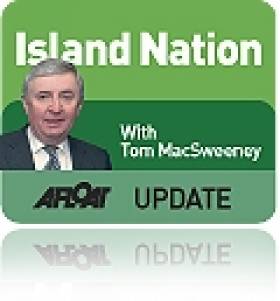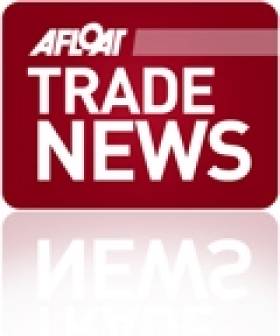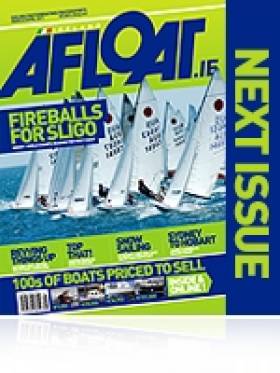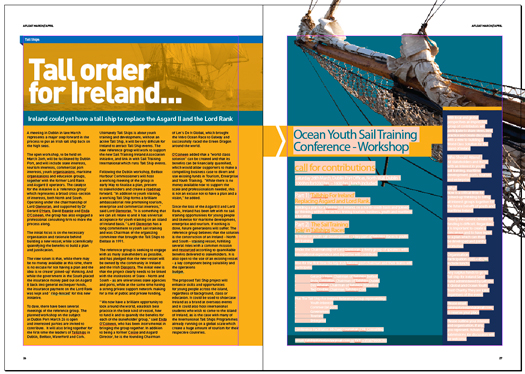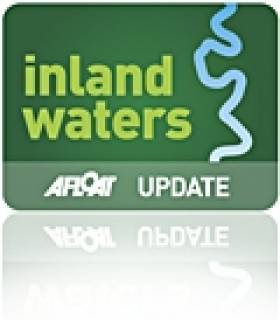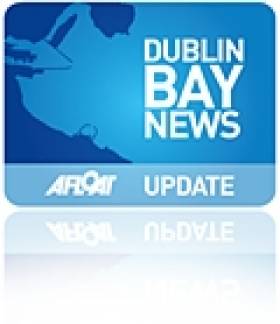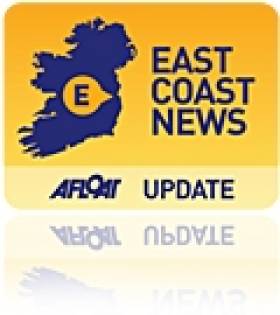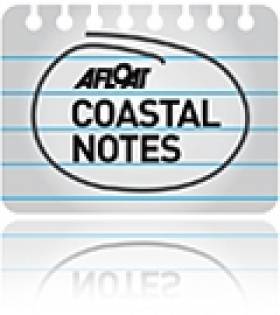Displaying items by tag: Harbour
Ports Must Not be Sold
Over 90 per cent of the nation's exports and imports move by sea. Our ports are the essential avenue, the doors to Ireland. They are the property of the nation and must work for the people, whose future has been destroyed by the greed of private interests. To suggest that recovery can be achieved by sale of these vital assets is a nonsense and damaging to the interests of the nation.
What is needed is a clear, definitive national ports policy in which the government sets down what the ports are to do for the nation. Their role should be identified clearly, their boards and managements told what they are expected to achieve on behalf of the nation, with penalties for failure.
Fine Gael had committed in its election manifesto, to replacing the existing boards of all State Port companies and Harbour Commissioners within one year of entering government.
Fianna Fail and the Progressive Democrats in government had turned the port companies into semi-private entities, responsible for their own financial operations. While it was indicated that this would improve competitiveness and provide better and more cost-friendly services for users, who would be represented on the company boards, there are differing views about how effective this has been.
Competition is not necessarily always the harbinger of effective service or provision of choice. A small island nation with a limited number of primary ports could have a policy maximising effectiveness, delineating between primary and minor ports providing commercial services, supporting the fishing industry and leisure sectors. There must be containment of costs, efficiency of operation and the best services for exporters and importers. There should be investment where required and could even be provision for private investment. But the ownership should remain with the State on behalf of the people.
The ports are national resources, not to be sold off to private interests.
Those who drew up the recovery report which proposes the sale of the ports represented private interests and included are banking and speculative development interests. They echo, in regard to the ports, a similar proposal in the 'second coming' of Bord Snip Nua'. There are some aspects of their suggestions which merit further consideration, but it is regrettable that people at high levels of position in Ireland appear to not fully appreciate that the nation is a small island for whom the sea and its approaches are of vital importance.
Boat Jumbles for Dun Laoghaire, Howth and Carrickfergus
If you fancy a rummage through a Bosun's locker then boat Jumble sales on three consecutive weekends and at three separate locations will satisfy all bargain hunters when the Irish boating season kicks off in a fortnight's time.
Each show is offering a range of boating, sailing and water sports equipment and accessories. There are new and used pitches and some familiar trade names in addition to second hand boats/dinghies and nautical “car boot” items.
The first opens on March 27th – the weekend when the clocks go forward – and it takes place on the Carlisle Pier in Dun Laoghaire Harbour from 10am to 4pm.
The next is across Dublin Bay when the RNLI stage a boat jumble at Howth Yacht Club on Saturday 2nd April from 10.30am to 1.30pm.
The last show is at Carrickfergus on Belfast Lough and this 'Irish Boat Jumble' is being promoted as the 'biggest' in Ireland. The Antrim show will be on Sunday 10th April starting at 10am.
All are offering economical rates and friends are being encouraged to team up and pool their surplus gear and share the selling task!
Dun Laoghaire Seeks New Harbour Master
Afloat's March/April Issue Out Next Week!
Is there no end to the achievements of Irish boaters against seemingly impossible odds?
The winter may have been a time of hibernation for some of us but as the stories in Afloat's March/April issue will bear out Irish sailors have been battling the elements all winter long.
James Carroll competed in January's Sydney-Hobart offshore race and, much closer to home, Paul A. Kay journeyed through snow and ice in December from Dun Laoghaire to a new marina on Valentia Island.
As if to prove a point that we're down but not out, a winter of results on foreign waters includes a win in the Mirror World Championships in Australia and a top Olympic result in Florida, USA.
They are gutsy performances from youth teams that shows, if nothing else, the next generation of Irish sailors is really up for a fight. All this plus lots, lots more on news-stands next week!
Selected contents from Ireland's only boating magazine include:
News
Surveyors Issue Boat Launch Warning, Buoyant Dinghies Buck the Market, Ice Diving in Ireland, German U-Boat Rediscovered in Cork Harbour, an Historic Trophy for South Pacific Dream Cruise, MGM open in Cork, Hugh Mockler joins Crosshaven Boatyard plus lots, lots more.
News Focus
A new masterplan for Dun Laoghaire harbour is badly needed but it needs buy in from all those that use it
Going Offshore
The tenth Dun Laoghaire to Dingle offshore race was launched in style
Marine Conference
Combating the downturn was the focus of a unique marine gathering on both sides of the Irish sea.

Gear Review
New dinghy gear, a new Crosshaven boot from Dubarry, a new raincoat for girls and an upgrade for Musto's MPX.
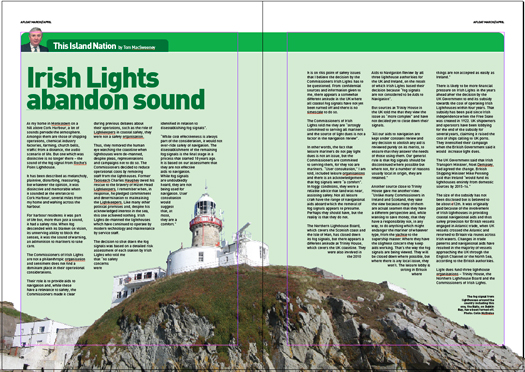
This Island Nation
The decision to shut down the fog signals was based on a detailed risk assessment. Tom MacSweeney on the loss of fog horns
Sailor of the Year
Anthony O'Leary of Cork is the Afloat.ie/Irish Independent "Sailor of the Year" in celebration of his outstanding achievements afloat nationally and internationally.
Tall Ships
W M Nixon looks at the realities of national sail training in the 21st Century.
Tall Ship Conference
Ireland could yet have a tall ship to replace the Asgard II and the Lord Rank, if a new group formed to press for a replacement is successful
Racing update
Ulstermen's World Title, Topper worlds for Dun Laoghaire, Two Irish campaigns line up for Figaro Race, SB3 Sailors Cry Foul at Dun Laoghaire Parking Fees and an Irish entry in the Moth worlds in Australia, Irish Mini 6.50 Campaign in Prospect.
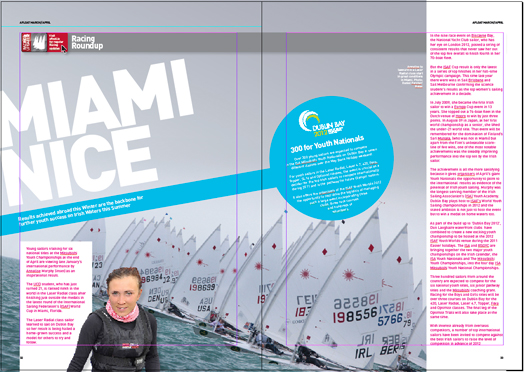
Youth Worlds preview
Results achieved abroad this Winter are the backbone for further Irish youth
success
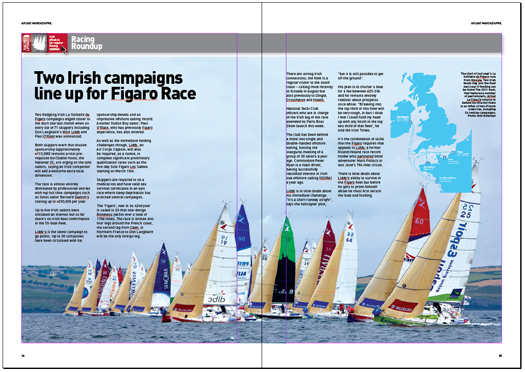
Figaro Preview
Two fledgling Irish La Solitaire du Figaro campaigns edged closer to the start line last month
Volvo Dun Laoghaire Regatta
Volvo Dun Laoghaire regatta has taken in 22 entries six months ahead of the first race of the biggest regatta in Irish sailing.
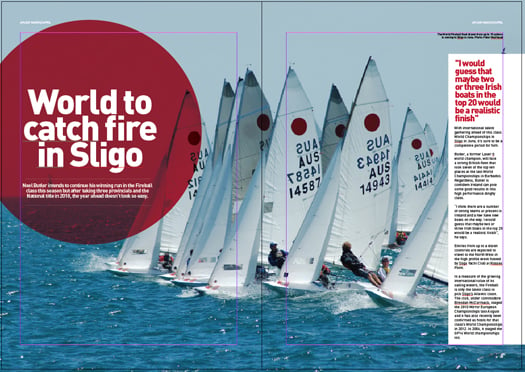
Fireball Worlds preview
Dun Laoghaire's Noel Butler intends to continue his winning run in the Fireball class this season but the year ahead doesn't look so easy as the World Championships come to Sligo
Sovereigns cup preview
Up to 30 Quarter tonners will be at the Sovereigns Cup this year including one from New Zealand.
Shiver to deliver
A journey through snow and ice from Dun Laoghaire to Valentia Island
Sydney-Hobart Race
Outside of the Volvo Ocean Race, the Sydney Hobart is one of the world's most challenging offshore races. James Carroll Raced it in January.
Inland
As the cuts begin to bite, it may be time to look at the British direction for our waterways, writes Brian J Goggin
Dubarry Nautical Crossword
Soundings
A Google aerial photo proves useful navigating for Baldoyle Estuary
- Anthony O'Leary
- Dun Laoghaire
- Tom MacSweeney
- Harbour
- MGM Boats
- Asgard II
- World Championships
- Dinghies
- Olympic
- Cork Harbour
- Valentia
- Mirror
- Dingle
- youth
- Lord Rank
- Island Nation
- Hugh Mockler
- Dubarry
- Tall ship
- brokerage
- sydneyhobart
- fog horn
- moth
- Mini 6.50
- Uboat
- Fireball worlds
- Sovereigns
- James Carroll
- Paul A. Kay
- Crosshaven Boatyard
- Baldoyle
- MPX
- W M Nixon
End of Winter Mooring Period in Public Harbours
Fine Gael Pledges to 'Steer the Marine' in Election Manifesto
Fine Gael has pledged to reinstate the Department of the Marine in its election manifesto published today. Under the heading 'steering the marine' Fine Gael also says it will replace the Boards of all State Port companies and Harbour Commissions within one year of entering government. The full chapter dealing with Marine is below:
1.11 Supporting the Seafood Sector and Marine
Expanding the Industry: Fine Gael believes Ireland, as an island nation with a strong and valued fishing tradition has huge potential to succeed as a serious competitor in the international seafood sector. The seafood industry currently generates annual revenues of €718 million and provides direct employment for 11,000 people. With an estimated 40 million tonnes of seafood to be required annually by 2030, there is significant scope for further expansion.
Common Fisheries Policy:
We will negotiate the best possible deal for Irish fishermen in the context of the ongoing review of the Common Fisheries Policy. Our priorities are:
• A progressive reduction of discards, fishery by fishery and in all maritime regions in the EU.
• Protection of the Hague Preferences.
• A uniform and transparent regulation regime.
• A clear, independently audited database of infringements across the EU.
• The development of a sustainable aquaculture plan.
• A strong focus on seafood marketing, labelling and country of origin to ensure imports meet the same
standards on safety, hygiene, traceability, recall, information and audit.
Sea Fisheries Bill:
We will publish legislation to replace the criminal sanctions system for minor fisheries offences with an administrative sanction system to bring Ireland into line with other European jurisdictions.
Funding for Fisheries:
Fianna Fáil and Green Party in-fighting has limited Ireland's ability to draw down EU funds for seafood development. We will resolve difficulties blocking the drawdown of available funds. Aquaculture Licensing: An additional 42 million tonnes of farmed seafood will be required to keep pace with demand each year by 2030, just 20 years away. We must increase our raw material supply and expand our aquaculture sector. We will remove administrative obstacles and clear the backlog of aquaculture licences currently preventing the creation of thousands of jobs in the aquaculture sector.
Value Added Products:
Currently, 85% of all Irish seafood is commodity traded. There is a significant opportunity to generate more value from this raw material base. Fine Gael will task Bord Iascaigh Mhara with assisting Irish companies in adding value to their products through innovation.
Single Food Label:
We will create and market a single label for all Irish produce and will drive a targeted marketing campaign to grow the Irish brand in new markets.
1.12 Steering the Marine
Marine Department:
Marine and fisheries policy is currently spread across three Departments. Fine Gael will merge these responsibilities under one Department for better co-ordination in policy delivery.
National Marine and Coastal Plan:
We will develop an integrated marine and coastal planning process to reach the full potential of our coastline in fishing, aquaculture, ocean energy and tourism.
Ports Development:
We will support the development of our ports and marine sector as important drivers of economic growth. We will also replace the Boards of all State Port companies and Harbour Commissions within one year of entering government.
The manifesto is HERE
Green Party Speaks Out for Small Boat Owners in Dun Laoghaire
Ciaran Cuffe TD of the Green Party has spoken out in support of small boat owners in a submission to the Dún Laoghaire Harbour Masterplan. Cuffe, a candidate in the General Election, says the prioritisation of space within the harbour for surface car parking and marshalling yards for ferry services has reduced the space available for small boat owners. Cuffe says the masterplan should specifically enhance facilities and storage space for small boat owners, such as the Coal Harbour Users Group (CHUG) and local yacht and water sports clubs. He also says consideration should be given to the development of workshops to promote traditional boat building and small craftrepair and restoration.
The full submission from Ciaran Cuffe is below:
"I welcome the preparation by the Dún Laoghaire Harbour of a masterplan for the harbour area. Dún Laoghaire harbour is a major recreational and amenity resource for the locality andwider Dún Laoghaire area and a long-term strategic vision underpinned by a plan-ledimplementation framework is vital in order to secure the harbour's future for the benefit of both the Harbour Company and the local community.
Maintaining a ferry link to the UK
I welcome the proposal to redefine Dún Laoghaire Harbour as a leisure harbour. However, Ibelieve that future opportunities to keep a ferry link with the UK should not be lost. As we have seen during recent incidents when airplanes were grounded, travelling by ferry is still aviable means of travel and may become increasingly so in the future. A seasonally ferryduring the summer months could be considered and the infrastructure needed for a ferryservice should be maintained. The Harbour Company should work to secure INTERREG funding to provide better linked-in ferry and train services between Ireland and the UK.
Cruise Ships & Tourist Development
There is considerable scope to attract the cruise liner market to Dún Laoghaire. Dún Laoghaire is a fantastic harbour location with a unique built and natural heritage. Its location immediately adjacent to the Dún Laoghaire DART station makes it an ideal gateway locationfor tourists to explore Dublin City and hinterland. We have seen the positive impact of large cruise liners docking at Dublin Port with thousands of visitors disembarking, visiting Dublin's tourist attractions and spending money in local businesses. Dún Laoghaire Harbours offers a much more pleasant and suitable docking location for cruiseships and there is a major opportunity to exploit this economic potential for the benefit of the wider locality. Any physical works required to facilitate the mooring of large cruise liners in Dún Laoghaire should be carefully designed so as to avoid any adverse impact on local builtand natural heritage, including the Dublin Bay Special Area of Conservation.
Built Heritage
The unique physical fabric and built heritage Dún Laoghaire Harbour is an important assetand must be conserved and enhanced. In particular, the historic Carlisle Pier now has thepotential to provide a high quality outdoor public amenity space. I understand that elements of the 1890's Victorian railway building have been retained and I believe that these elements should be reconstituted as part of multi-functional covered space to, for example, host an ice-rink in winter, the Festival of World Cultures in summer and occasional outdoor events andmarkets.
Open Space & Public Accessibility
In recent years significant areas of the Harbour Company land was converted to revenuegenerating surface car parking. This has created a car dominated environment and adisconnect between the harbour area and Dún Laoghaire town. The long-term future of theharbour is much better served by opening up the harbour area to pedestrians and cyclists, enhancing accessibility for the general public, improve directional signage, reducing surfacecar parking and delivering more green spaces. In order to achieve this, the Masterplan shouldinclude a detailed design framework for the public realm including further measures to removethe barriers to accessibility due to the rail line.
Views
The sensitive built, natural and visual environment of the harbour requires a very carefulapproach to any future infill development. Particularly, infill development should be in keepingwith the existing building heights of the town to protect the harbour setting and views fromDún Laoghaire to Dublin Bay and Howth Head and sensitively designed to conserve thecharacter of local built heritage and the numerous important protected structures.
Small Boat Owners
The prioritisation of space within the harbour for surface car parking and marshalling yards for ferry services has reduced the space available for small boat owners. The masterplan should specifically enhance facilities and storage space for small boat owners, such as the CoalHarbour Users Group (CHUG) and local yacht and water sports clubs. Consideration should be given to the development of workshops to promote traditional boat building and small craftrepair and restoration.
Conclusion
Dún Laoghaire is extremely fortunate to have a unique historic harbour resource, which is a central part of the local identity and a much loved and valued social, recreational, and amenity resource. However, the future economic viability of the harbour is dependent on creating appropriate synergies with the wider economy of Dún Laoghaire. The imaginative redevelopment of the harbour can contribute significantly to the local economy, particularly inthe development of heritage and tourism initiatives, The Masterplan must focus on how the future development of the harbour can contribute to cultivating these synergies in a manner, which is economically, socially and environmentally sustainable."
Bray Watch Goes Online
Dun Laoghaire Frostbites Celebrate 40th Anniversary Next Month
Coastal Harbours Benefit from Infrastructure Funding
Malahide is one of over a dozen harbours around the coast to benefit from an announcement by Sean Connick TD, Minister of State at the Department of Agriculture, Fisheries and Food today that funding has been approved for harbour development projects in Local Authority owned harbours under the Fishery Harbour and Coastal Infrastructure Development Programme 2010.
Funding has been approved for projects that have been identified as priorities by each of the five Local Authorities listed below. Up to 75% of the cost of an approved project (subject to the maximum figure approved) will be available for each project with the Local Authority providing the balance. The project must be completed and funding drawn down before the end of the current calendar year. The projects are located in harbours around our coastline that are in Local Authority ownership.
Minister Connick said “The Local Authority owned fishing harbours supplement and underpin the activities undertaken in our Department of Agriculture, Fisheries and Food owned Fishery Harbour Centres. These harbours are of great importance to the fishing and aquaculture industries and provide much needed employment and support for economic activity in our coastal communities. I am delighted to be able to announce the provision of this funding to enhance and develop these facilities”.
The following is a list of the Local Authorities that have been approved funding:
|
Local Authority |
Approved Funding |
||
|
FINGAL COUNTY COUNCIL |
|||
|
Malahide - Repair to slipway |
€55,875 |
||
|
SLIGO COUNTY COUNCIL |
|||
|
Mullaghmore Harbour - Dredging of harbour |
€90,000 |
||
|
CORK COUNTY COUNCIL |
|||
|
Ballycotton - Breakwater Emergency works |
€225,000 |
||
|
WEXFORD COUNTY COUNCIL |
|||
|
Fethard harbour 1 - Fishing harbour and slipway study |
€18,750 |
||
|
Fethard Harbour 2 - Fishing harbour and slipway |
€7,500 |
||
|
Kilmore Quay Harbour - Provide a new laydown area at the end of West Pier |
€54,750 |
||
|
Courtown Harbour 1 - Health & Safety improvements |
€18,750 |
||
|
Duncannon & Hook Peninsula Piers - New CCTV system & Harbour Repairs |
€56,250 |
||
|
WEST CORK COUNTY COUNCIL |
|||
|
Castletownbere - Bank Harbour |
€18,422 |
||
|
Bantry- Doneen Pier |
€23,288 |
||
|
Schull - Lahertanavally Pier |
€24,375 |
||
|
Schull - Ballycummisk Pier |
€19,916 |
||
|
Castletownbere - Trafrask Pier |
€18,422 |
||
|
Western Division - Safety Works |
€46,369 |
||
|
Bantry Pier - Public Toilets |
€30,000 |
||
|
|
|
|
|
|
|
|
Total Estimated Cost |
€707,667 |


























